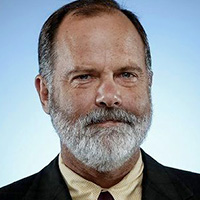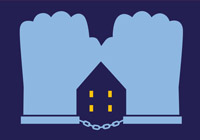Much popular thinking about criminal justice springs from a conception of what causes crime to occur. Call it the “Myth of ‘Les Miserables.'”
In Victor Hugo’s novel, Jean Valjean steals a loaf of bread to support his starving family and then spends his life paying for it. The novel traces Valjean’s long struggle, pursued by the relentless Inspector Javert, and stands as one of the 19th century’s great works of literature. It is a moving, enduring parable of redemption, but its effect on the way we think about crime is less constructive. “Les Miserables” is built on the notion that criminals are fundamentally driven by economic need – that the poor steal because they lack, that violence is a byproduct of want.
That’s sometimes true, of course, but most violence in American society has little to do with economic necessity, and treating crime as an outgrowth of need misdirects police and criminal justice resources.
That will surprise and annoy some readers, but it’s fairly easy to demonstrate. If it were true that crime was driven by the economy, crime would then increase as the economy declined and would decrease during times of prosperity. To test the premise, then, let’s look at history.
The Great Depression gripped the United States from 1929 until, roughly speaking, the outbreak of World War II in 1941. During those years, some crimes and violence increased –suicide, for instance, along with prostitution and, since buying and consuming alcohol was illegal during Prohibition, the crimes and attendant violence around buying, selling and shipping alcohol. But crime overall during the Depression remained steady, actually falling a bit; murders dropped considerably, notwithstanding Prohibition and organized crime’s role in bootlegging.
Short answer: America’s worst economic period did not produce a rise in crime.
What about during economic growth? There, we can look to the 1950s or the 1980s and 1990s, two periods of muscular economic expansion. The 1950s are particularly instructive, as growth in that decade was, at least by later standards, shared across the landscape, rather than concentrated among the wealthy. In the 1950s, crime fell during the early years of the decade, then rose in the later years, with no obvious connection to the state of the economy. In the 1990s, an explosive if uneven period of economic growth and opportunity, crime fell dramatically.
The economy was healthy during the 1960s, so crime, if it were connected to prosperity, should have declined. It did not “Why,” the National Commission on the Causes and Prevention of Violence asked in 1969, “have urban violent crime rates increased substantially during the past decade when the conditions that are supposed to cause violent crime have not worsened – indeed, have generally improved?” And then, during the economic ups and downs of the 1970s, crime marched steadily upward.
Finally, there is the Great Recession that began in 2008-9, with spikes in unemployment and growth, followed by a long, slow recovery. In 2010, the first full year of the recession, violent crime fell by 6 percent. Property crime fell by 2.7 percent.
Taken as a whole, those results suggest a kind of data gibberish: When the economy was bad, in the 1930s, crime fell; when it was good, in the 1950s, crime held steady. It increased during the economically healthy 1960s and increased again during the up-and-down 1970s. It fell during the expansion of the 1990s and the contraction of the 2010s. Statistically speaking, what that strongly suggests is that crime is not affected by the economy. There may be those who are forced to steal to avoid starvation, but they are to be pitied and helped and are a far cry from what really causes fear and victimization in our lives.
What does that mean for efforts to thwart crime? It suggests that they should not be directed toward the economy, and argues that police cannot resort to a popular excuse of previous eras – that crime will rise, whatever police do, during hard times.
Instead, police and political leaders need to look for more sophisticated and historically defensible ideas about what causes crime. Two scholars, Marcus Felson and Lawrence Cohen, have suggested a combination of factors. Crime, they argue, occurs when three things are present: a motivated offender, a suitable target and the absence of a capable guardian.
There’s not much police can do about an offender’s motivation – someone with a rage to kill will have that rage irrespective of police or even possible consequences. But society can make potential victims less suitable or vulnerable – by boosting community cohesion, attacking blight and disorder, even by offering self-defense or awareness classes.
Most importantly, governments at all levels can train, supervise and hold accountable their guardians. Contemporary police, at last willing to consult serious social research on what affects crime and what does not, are obligated to serve as responsible guardians, protecting the vulnerable and contributing to social cohesion by doing their jobs within the boundaries of the law and community trust. The LAPD’s motto, meaningfully, is “to protect and serve,” not “to dominate and control.”
Poverty is not responsible for crime, but governments are responsible for safety, and police can help provide it, not through the marauding efforts of a Javert but with conscientious, community-based, problem-solving policing.
Note: More of Newton’s work can be found at the Police Assessment Resource Center, where he is contributing editor. PARC’s website is: http://www.parc.info
























